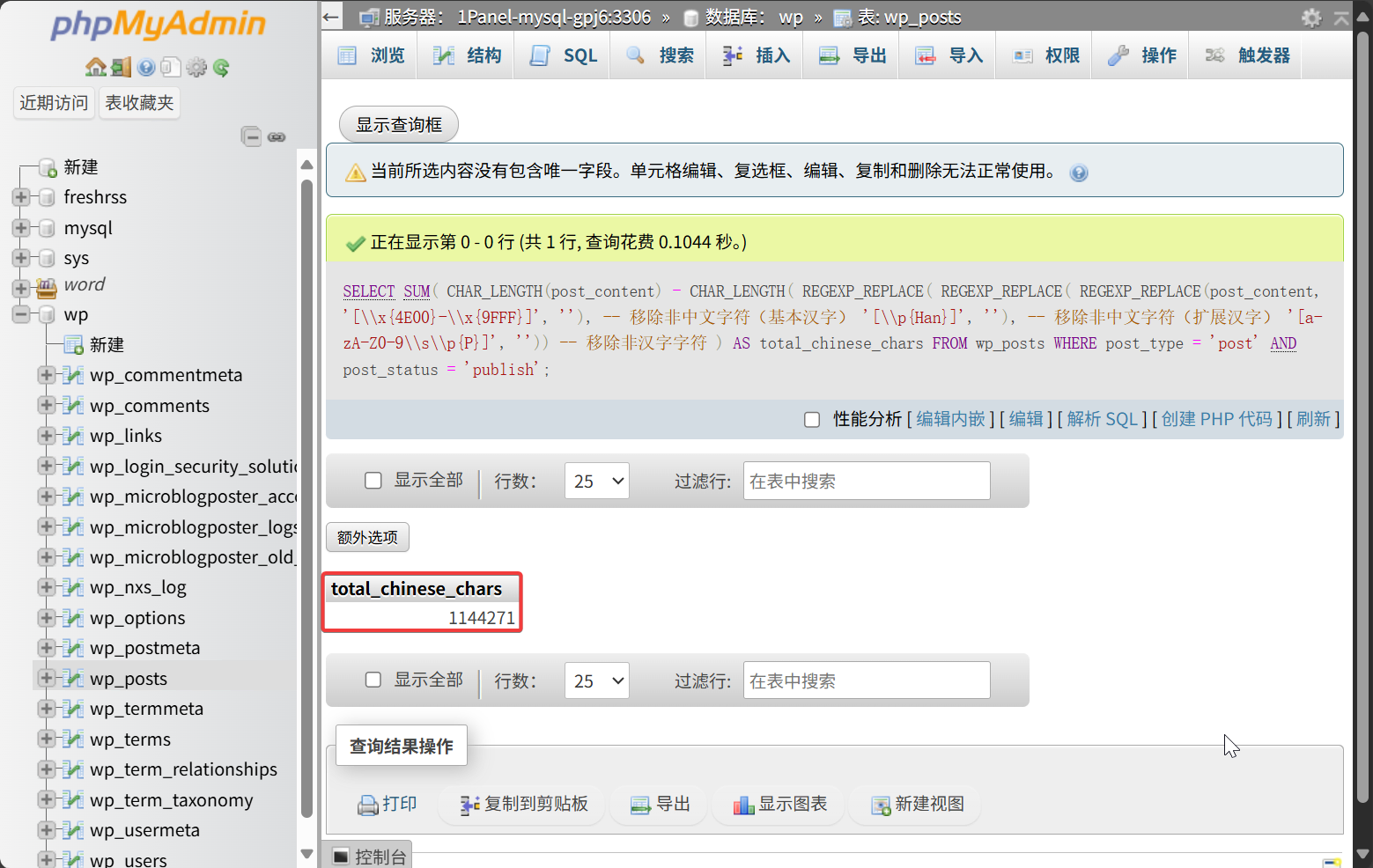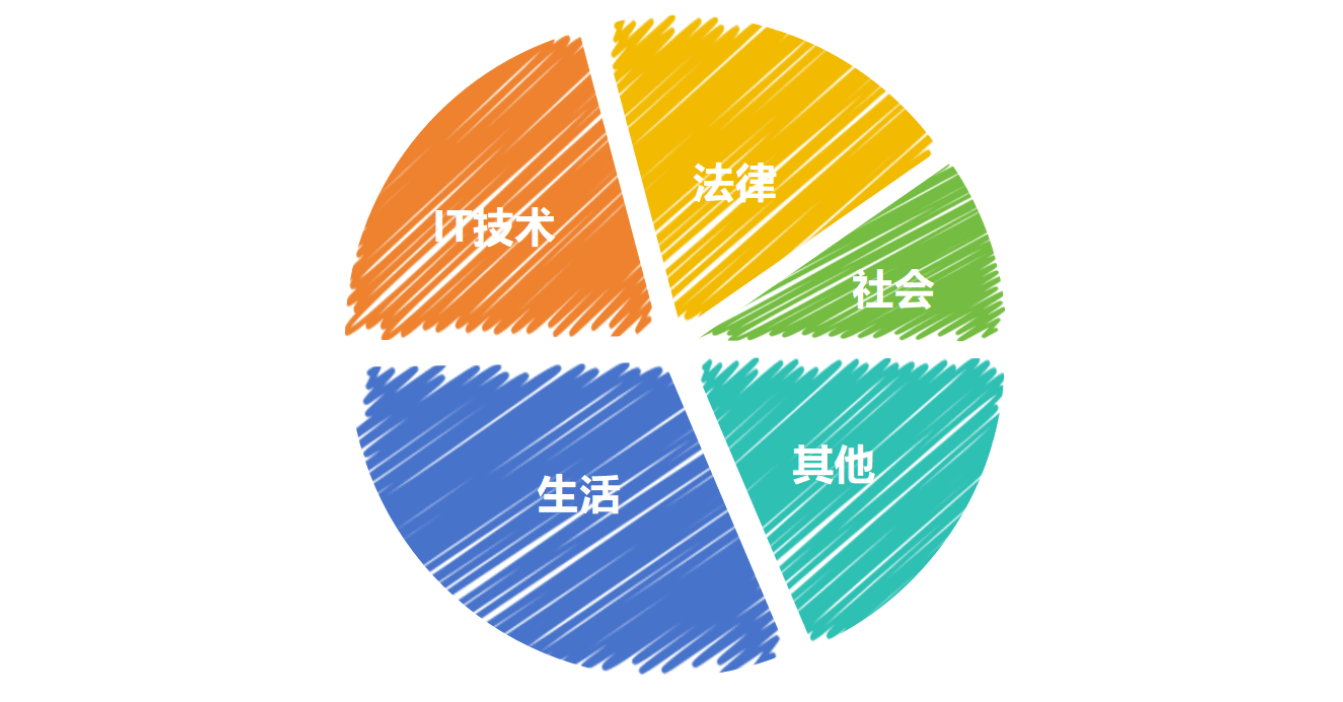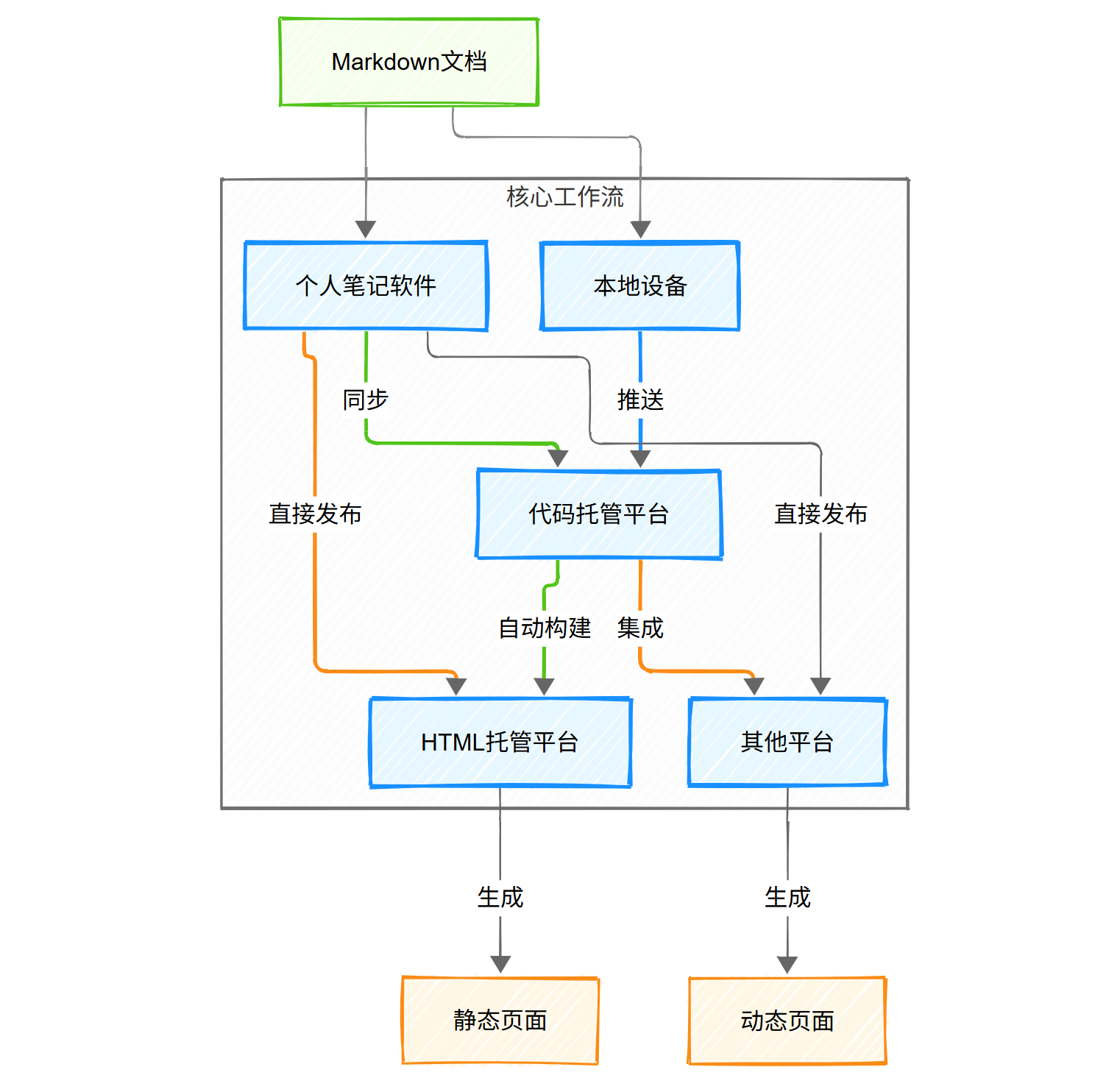Upon Reaching a Million Words—Launching a Personal WeChat Subscription Account

Yesterday, I saw a friend mention in a QQ group that I had already written over a million words. Indeed, as of now, Hugo statistics show 359 articles, totaling 1,036,977 words. When the count was around eight or nine hundred thousand, I was quite attentive, feeling a bit excited as the million mark approached. But when it actually crossed that threshold, I didn't pay much attention anymore. This reminded me of the psychological paradox of goal achievement: people often invest immense emotion in pursuing a goal, yet may feel a sense of emptiness once it's accomplished.
Reflecting on the Writing Journey
Reaching a million words might be a belated "achievement." After all, old friends familiar with Lao T, especially those who joined Blogfans with me back in 2008, know that I've deleted many past articles multiple times. According to an old MySQL database I kept from 2017, the word count back then was already 1.14 million, though I never gave it much thought at the time. Of the content that remains today, less than a quarter dates from before 2017. Still, no matter what, crossing the million-word mark holds some commemorative significance for me.

Initial Thoughts
Looking back at my writing journey since 2008, I think it truly reflects the initial phrase I wrote: When each sunrise, we start a new. Back then, this phrase mostly conveyed a sense of rebirth—the dawn breaking, a new path beginning. Over time, with daily updates, it evolved into the sun rising again, a new chapter unfolding. Now, standing at a new starting point, I find myself thinking that this is likely another dawn, requiring a fresh perspective and new horizons.
1---
2title: "Hello, World!"
3slug: "hello-world"
4date: 2008-05-21
5categories:
6 - technology
7tags: ["WordPress"]
8---
9
10After over ten hours of learning from scratch, I finally launched my first website.
11I'd especially like to thank Zhua Zhua; without his last-minute message offering free hosting for this site, I would have rented a server from Xinye Online!
12I also want to thank all my friends, both those who've stood by me through thick and thin and those I've never met in person. I'll need everyone's continued support to keep improving! ^_^
13> When each sunrise,we start a new.During my student years, Lao T was always poor at Chinese and not very articulate. Starting to write on a whim, I didn't know what to write about.
So, I began with mundane diary entries, forcing myself to keep updating regularly. I didn't care what netizens thought; I just did my own thing.
It was through this simple, naive approach that Lao T gradually began to express freely. Whatever I saw or thought, I'd jot it all down.
Later, when I revisited my old writings, I found much of it incomprehensible even to myself.
After all, those words were likely fleeting thoughts sparked by something I'd read or experienced somewhere.
Writing Direction
In the early years, my writing mainly focused on campus life.
In 2011, after I entered the workforce, my writing gradually shifted toward work-related topics.
Especially when I stumbled into the IT industry, I was learning vast amounts of new knowledge almost daily, leaving behind many IT notes.
For a while afterward, I struggled with whether personal writing should maintain a fixed thematic direction.
However, much like the journey at dawn that needs to freely expand its boundaries, over the years, I've persisted purely out of personal interest, and the "glorious tradition" of "doing my own thing" has naturally endured.
A quick Hugo tally of my remaining 359 articles shows 109 life-related pieces, 74 technical articles, 68 legal articles, 34 social commentaries, and another 65 miscellaneous entries.

In the foreseeable future, this scattered thematic style will undoubtedly continue, though I'll try to exercise some restraint, striving for a better balance between "self-amusement" and "knowledge sharing."
WeChat Official Account
Years ago, friends suggested I start a WeChat Official Account, but I had several concerns.
The account requires a relatively fixed writing direction. As mentioned, over the years, my writing hasn't followed a specific theme. If I talked about repairing a smart toilet cover one day and switched to writing techniques for structured indictments the next, it would seem rather disjointed. But as my current WeChat account shows, this issue is pretty much unsolvable. I can only hope my followers will be understanding!
The writing approach differs significantly. A major reason I avoided WeChat Official Accounts is their "closed" nature—it's hard to connect with the outside world; content inside doesn't get out, and external content doesn't get in. In contrast, open-source platforms like Hugo, Next.js, and Astro are entirely different. These platforms focus on creation, allowing authors to concentrate on writing Markdown documents, storing them anywhere, and migrating them anytime, with everything else handled by automated processes. Even WordPress, which I used earlier, can sync posts to numerous platforms like Weibo, Zhihu, Jianshu, Juejin, CSDN, and Typecho with one click, significantly boosting productivity.

- The content style is quite different. Currently, most creators using open-source platforms have some background in IT or internet-related fields, and their discussions often revolve around these areas. Many terms, methods, and tools are familiar to them, easily understood with a hint. But on WeChat, with its broader audience, the original writing style needs adaptation, requiring considerable effort.
In fact, I registered a WeChat Official Account years ago, copied a couple of articles to test the CMS features, found it quite inconvenient, and never bothered with it again.
Why Start Now?
Strangely enough, as someone who's always scoffed at closed platforms, I never thought I'd pick up that long-dormant account.
It's like writing in Martian code on QQ Zone back in high school to seem profound—now, I've had to bow to reality. It's not that I suddenly realized how great Official Accounts are, but I noticed all my tech-savvy friends have quietly set up shop there.
It feels like running into my math teacher at an internet cafe during an all-nighter back in the day—a moment of awkwardness before we each quietly booted up a computer.
Technical issues are mostly resolved. A few months ago, while helping a friend with WeChat Official Account formatting, I looked into rendering Markdown documents and copying them directly into the WeChat editor. This has significantly reduced the difficulty of syncing articles to the platform (though I still have to manually log into the backend to tinker).
Content沉淀 and diversification considerations. After years of writing, I've realized that while open-source platforms are flexible, their audience is mostly within the same circle. WeChat's diverse user base can help content reach a broader audience, fostering cross-disciplinary knowledge exchange. For instance, in my friends' article subscriptions, searching for any obscure AI model name turns up many articles. But if such AI knowledge stays confined to tech circles, it clearly hampers AI development and societal progress.
A new starting point to commemorate the milestone. Reaching a million words is like a rest stop on life's journey, and reviving the Official Account is like lighting a new lamp at this stop. It's not just to mark this special moment but also to experiment with a more life-oriented expression on a new platform. After all, the essence of writing is sharing, not self-admiration.
On Writing Frequency
After launching the WeChat Official Account, I'll maintain my usual writing pace, updating during off-hours and weekends, roughly 1–2 articles per week.
The frequency might be higher initially since I have quite a backlog of "inventory," but it'll eventually settle back into the usual rhythm.
About the Account Name
When I registered "观北" (Watch North) years ago, I didn't think too much about it—I followed my usual domain-registration mindset, aiming for something short, simple, and memorable. The name doesn't have any specific meaning and isn't related to literal interpretations like "Northern Observation." It was just because I needed a Chinese name before choosing an English one, so I casually went with watchnorth.
Similarly, the name "Lao T" came from a playful remark by my child, and since an online search showed few people using it, I just stuck with it.